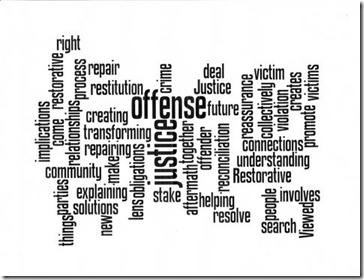 How do people heal from violent crime? How do they mend after a rape or assault, or after losing a loved one to murder? How do they get over the grief, anger and gnawing sense that no matter what happens, justice will never be served?
How do people heal from violent crime? How do they mend after a rape or assault, or after losing a loved one to murder? How do they get over the grief, anger and gnawing sense that no matter what happens, justice will never be served?
For Patricia Dahlgren, whose mother, June Duncan, was abducted and strangled in December 1995, the answer came from an unusual source: the man who killed her mother.
I spoke with Dahlgren, who is now 62 years old and lives on a small farm in Oregon’s coastal mountains, shortly before the release of my novel, “The Crying Tree,” a book about murder and forgiveness that takes place in Oregon. I was interested in knowing more about recent efforts by the Oregon Department of Corrections to help victim-survivors like Dahlgren come to grips with their loss, as well as help offenders take responsibility for their actions. Such efforts have been quietly gaining a foothold in the state and nationally, and seemingly have been missed by politicians, voters and journalists who are focused on the more punitive aspects of crime and punishment, such as mandatory sentencing laws and harsher penalties.
The program that brought Dahlgren together with her mother’s murderer is called Facilitated Dialogue. Launched by the Corrections Department in 2004, it was modeled after victim/offender dialogue programs in Canada, which have been conducting such meetings for more than two decades. Ironically, the first state to offer victim/offender dialogues was Texas, a place better known as the execution capital than the resolution capital. Since the Lone Star State began its program in the late 1990s, 24 more states have developed similar programs.
“Victims have questions,” said Betsy Coddington, a founder of Oregon’s Facilitated Dialogue Program and the executive director of Resolutions Northwest, a Portland-based mediation group. “They have things they want to know and things they want to say. Things only the offender can respond to. Giving people that opportunity, it can be life changing.”
Prior to the program’s creation, the Oregon Corrections Department refused requests by victims to meet with their offenders. Even letters between the parties were prohibited by department rules. The policy was meant to protect victims. But according to Karen Roddy, the department’s victim services coordinator, that concern may not always be necessary. “We’re finding these meetings can have an incredibly healing effect on both the victim and the offender. Victims gain back their power over the situation, and offenders get the opportunity to be fully accountable for their actions. It’s a very rewarding process.”
That is the message Dahlgren recently took to several women incarcerated at Coffee Creek Correctional Facility in Wilsonville. Her visit in April was the culmination of a brand-new 22-week Victim Offender Education Program.
During Dahlgren’s daylong visit, she told the inmates of the years of grief and counseling she endured following her mother’s murder. How she once horsewhipped a tree, slashing her anger into its brittle bark. She spoke about the loneliness of violent crime, the isolation and impenetrability of it, as well as its physical and spiritual tolls. Then she told them about the Facilitated Dialogue Program.
On June 13, 2007, Dahlgren entered the Two Rivers Correctional Institution in Umatilla and sat down with the man who killed her mother. They were in a conference room, and were accompanied by Dahlgren’s best friend, two facilitators and a minister. The meeting lasted all day and concluded in a way that stunned everyone. With Dahlgren telling the man she calls Mr. H that she forgave him.
“I don’t know if people will understand,” she said, recalling the conversation two years later. “But I really didn’t have a choice. My life changed when I saw that man’s pain and remorse. I watched him struggle as he told me exactly what he did to my mom, how she reacted and how he hated himself for what he’d done. You have no idea what that’s like, to watch the person who murdered someone you love break down like that. I got my life back that day.”…
After a protracted battle to end inordinate charges for phone calls from prison that exceeded $17 for a 15-minute phone, the Federal Communications Commission voted Friday to cap the rate for interstate calls at 25 cents per minutes, meaning 15-minute calls could no longer cost more than $3.25.
